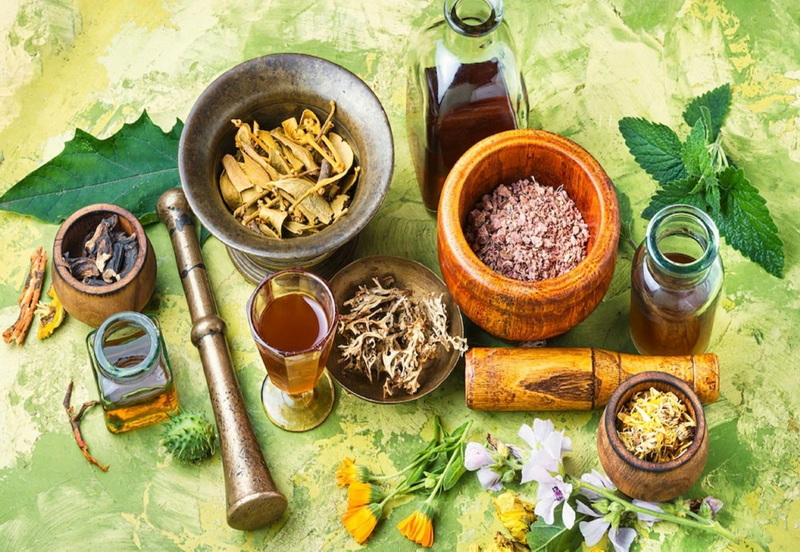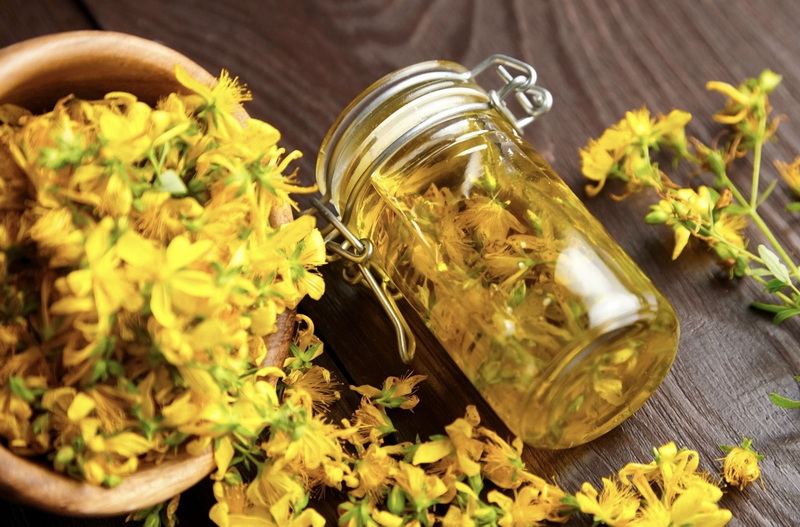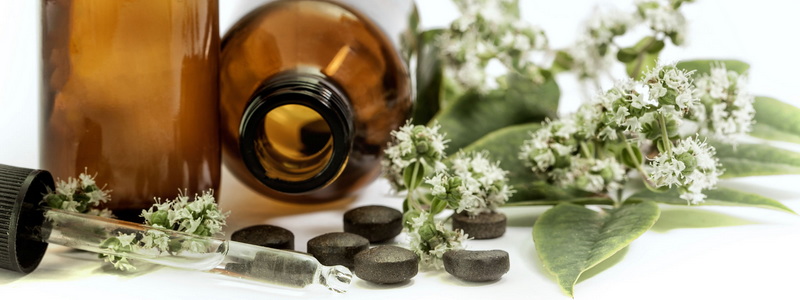Content Menu
● Introduction to Herbal Extracts in France
● Leading Herbal Extract Manufacturers in France
>> 1. Plantex
>> 2. BOTANIC'ALL
>> 3. Natural Ingredients
● Importance of Natural Feed Additives Manufacturers
● Manufacturing Process of Herbal Extracts
● Applications of Herbal Extracts in Various Markets
>> Nutraceuticals
>> Cosmetics
>> Food Industry
>> Animal Nutrition
● Market Trends and Industry Outlook in France
● Conclusion
● FAQ
>> 1. What certifications do French herbal extract manufacturers typically hold?
>> 2. How are natural feed additives beneficial in animal nutrition?
>> 3. What extraction methods are commonly used for herbal extracts?
>> 4. Are herbal extracts regulated in France?
>> 5. How can I choose a reliable herbal extract supplier in France?
France has long been recognized for its rich tradition in herbal medicine and natural health products. Today, it stands as a leading hub for the production and supply of high-quality herbal extracts, catering to diverse industries including nutraceuticals, cosmetics, food, and animal nutrition. For brands, wholesalers, and manufacturers worldwide seeking premium natural ingredients, France offers a robust ecosystem of trusted herbal extract manufacturers and suppliers. This article explores the top players in this sector, highlights the significance of natural feed additives, and provides insights into the manufacturing processes and market trends.

Introduction to Herbal Extracts in France
Herbal extracts are concentrated preparations derived from plants, capturing the active phytochemicals responsible for their therapeutic, nutritional, or sensory benefits. These extracts are widely used in various applications such as dietary supplements, cosmetics, pharmaceuticals, and animal feed additives. France's herbal extract industry combines ancestral botanical knowledge with cutting-edge scientific research, ensuring products meet stringent quality and safety standards.
The country's temperate climate and diverse flora provide an ideal environment for cultivating a wide variety of medicinal and aromatic plants. This natural advantage, combined with a strong regulatory framework and advanced manufacturing infrastructure, positions France as a global leader in herbal extract production.
Leading Herbal Extract Manufacturers in France
1. Plantex
Plantex is a prominent French manufacturer specializing in plant extracts for nutraceutical, food, animal nutrition, and cosmetic markets. With over 30 years of expertise, Plantex integrates traditional plant wisdom with modern science. Their state-of-the-art facility in Saint-Michel-sur-Orge adheres to the highest standards of safety, hygiene, and environmental responsibility. Plantex's commitment to authenticity and premium quality makes them a preferred partner for many businesses.
Plantex offers a broad portfolio of standardized extracts, including ginkgo biloba, green tea, turmeric, and echinacea. Their ability to customize formulations and provide OEM services allows clients to develop unique products tailored to specific market needs. The company also invests heavily in research and development, ensuring continuous innovation in extraction technologies and product efficacy.
2. BOTANIC'ALL
BOTANIC'ALL is a supplier dedicated to developing and manufacturing natural active ingredients for nutraceutical, cosmetic, food, and animal nutrition sectors. Their focus on naturalness aligns with the growing consumer demand for ecological and healthy products. BOTANIC'ALL supports clients in creating innovative ingredients that enhance product efficacy and sustainability.
The company emphasizes sustainable sourcing practices, working closely with farmers and wild collectors to ensure traceability and environmental stewardship. Their product range includes herbal extracts like rosemary, chamomile, and valerian, which are widely used for their antioxidant and calming properties. BOTANIC'ALL's expertise in blending and formulating complex herbal mixtures makes them a valuable partner for brands aiming to differentiate themselves in competitive markets.
3. Natural Ingredients
Specializing in additives, raw materials, and premixes for the animal feed industry, Natural Ingredients is a French company that emphasizes natural and innovative solutions to improve animal well-being and performance. Certified with Fami QS and Ecocert for organic products, they ensure compliance with European Union regulations. Their portfolio includes plant extracts, essential oils, and active plant compounds tailored for feed applications.
Natural Ingredients focuses on developing natural feed additives that support gut health, enhance nutrient absorption, and reduce environmental impact by lowering methane emissions from ruminants. Their R&D team collaborates with universities and research institutes to validate the efficacy of their products through scientific trials. This commitment to evidence-based innovation strengthens their reputation as a trusted supplier in the natural feed additives market.
Importance of Natural Feed Additives Manufacturers
Natural feed additives are vital components in animal nutrition, enhancing health, growth performance, and reducing reliance on antibiotics. French manufacturers excel in producing these additives, leveraging plant extracts with bioactive compounds that support gut health, immunity, and overall animal welfare. The integration of natural feed additives reflects a global trend towards sustainable and responsible animal farming practices.
The use of herbal extracts as natural feed additives offers multiple benefits. For example, extracts from oregano and thyme contain essential oils with antimicrobial properties that help maintain a balanced gut microbiota in livestock. Similarly, extracts from garlic and cinnamon have been shown to improve feed efficiency and reduce inflammation. These natural alternatives align with consumer preferences for antibiotic-free animal products and contribute to the reduction of antimicrobial resistance.
French manufacturers also focus on formulating premixes that combine several plant extracts and nutrients to optimize animal health. These premixes are tailored for different species, life stages, and production goals, such as enhancing milk yield in dairy cows or improving growth rates in poultry. The ability to customize natural feed additives ensures that producers can meet the specific needs of their animals while adhering to regulatory requirements.
Manufacturing Process of Herbal Extracts
The production of herbal extracts involves several critical steps to preserve the bioactive compounds and ensure product quality:
- Selection and sourcing: High-quality raw botanical materials are sourced, often certified organic or wildcrafted, ensuring purity and potency. French manufacturers prioritize traceability and sustainability in their supply chains, often partnering directly with growers to monitor cultivation practices.
- Extraction: Techniques such as solvent extraction (using water, alcohol, or other solvents) concentrate the desired phytochemicals from plant parts like leaves, roots, or seeds. Advanced methods like supercritical CO2 extraction and ultrasound-assisted extraction are increasingly used to improve yield and preserve sensitive compounds.
- Concentration and purification: Extracts are refined to achieve standardized levels of active ingredients, balancing efficacy and safety. This step may involve filtration, evaporation, and drying processes such as spray drying or freeze drying to produce powders or liquid concentrates.
- Quality control: Rigorous testing ensures compliance with regulatory standards and consistency across batches. Analytical techniques such as high-performance liquid chromatography (HPLC), mass spectrometry, and microbiological assays verify the identity, purity, and potency of the extracts.
- Formulation and packaging: Extracts are formulated into final products or intermediates, including powders, capsules, liquids, or premixes for animal feed. Packaging is designed to protect product integrity and extend shelf life, often incorporating eco-friendly materials.
This meticulous manufacturing process ensures that herbal extracts retain their bioactivity and meet the expectations of end-users across different industries.

Applications of Herbal Extracts in Various Markets
Nutraceuticals
Herbal extracts provide natural health benefits and are key ingredients in dietary supplements aimed at improving wellness and preventing diseases. French manufacturers supply standardized extracts used for cognitive support, immune enhancement, anti-inflammatory effects, and antioxidant protection. Popular extracts include ginseng, milk thistle, and black elderberry.
Cosmetics
Plant extracts enhance the appearance and scent of cosmetic products, offering natural alternatives to synthetic chemicals. Extracts such as aloe vera, chamomile, and green tea are valued for their soothing, anti-aging, and antioxidant properties. French suppliers often collaborate with cosmetic brands to develop innovative formulations that meet clean beauty standards.
Food Industry
Extracts serve as natural flavorings, preservatives, and functional ingredients in health-focused food products. For example, rosemary extract is widely used as a natural antioxidant to extend shelf life, while peppermint and vanilla extracts add flavor. The clean-label trend drives demand for plant-based ingredients that improve product appeal and nutritional value.
Animal Nutrition
Natural feed additives derived from herbal extracts improve animal health, growth, and productivity, aligning with sustainable farming goals. French manufacturers provide tailored solutions that enhance feed efficiency, reduce environmental impact, and promote animal welfare. These products support the global shift toward responsible animal husbandry and organic farming.
Market Trends and Industry Outlook in France
The French herbal extract market is characterized by:
- Fragmentation with multiple key players: Companies like Alltech, Adisseo, and Cargill also contribute to the feed additives segment, indicating a competitive yet collaborative environment. Smaller specialized manufacturers coexist with multinational corporations, fostering innovation and diversity.
- Focus on sustainability and innovation: Manufacturers invest in eco-friendly processes and novel product development to meet evolving consumer and regulatory demands. This includes the use of renewable energy, waste reduction strategies, and the development of organic and non-GMO extracts.
- Strong regulatory framework: Herbal medicines and extracts are regulated under strict guidelines to ensure safety, efficacy, and quality, with many products requiring marketing authorization. France's adherence to European Union regulations ensures high standards that facilitate international trade.
- Growing demand for natural feed additives: The animal nutrition sector is increasingly adopting plant-based additives to replace synthetic compounds and antibiotics. This trend is driven by consumer awareness, regulatory pressure, and the need for sustainable livestock production.
- Digitalization and traceability: Advanced technologies such as blockchain and IoT are being integrated into supply chains to enhance transparency and quality assurance. This technological adoption builds trust among consumers and business partners.
Conclusion
France stands as a powerhouse in the herbal extract industry, offering premium quality natural ingredients for diverse applications. The synergy of traditional botanical knowledge and modern scientific rigor enables French manufacturers to deliver authentic, effective, and sustainable products. For international brands, wholesalers, and producers seeking natural feed additives and herbal extracts, partnering with French suppliers ensures access to innovation, compliance, and excellence. As demand for natural and sustainable solutions grows, France's herbal extract sector is poised for continued expansion and leadership.

FAQ
1. What certifications do French herbal extract manufacturers typically hold?
French manufacturers often hold certifications such as ISO 9001, GMP, Fami QS, and Ecocert for organic products, ensuring high-quality standards and regulatory compliance.
2. How are natural feed additives beneficial in animal nutrition?
Natural feed additives improve animal health by supporting gut function, enhancing immunity, and reducing antibiotic use, leading to better growth performance and sustainability.
3. What extraction methods are commonly used for herbal extracts?
Common methods include solvent extraction using water or alcohol, steam distillation, supercritical CO2 extraction, and ultrasound-assisted extraction, chosen based on the herb and desired compounds.
4. Are herbal extracts regulated in France?
Yes, herbal medicines and extracts are regulated under the French Public Health Code and European Union regulations, requiring marketing authorization or registration to ensure safety and efficacy.
5. How can I choose a reliable herbal extract supplier in France?
Evaluate suppliers based on certifications, quality control processes, customer reviews, sustainability practices, and their ability to provide product samples for testing.






























